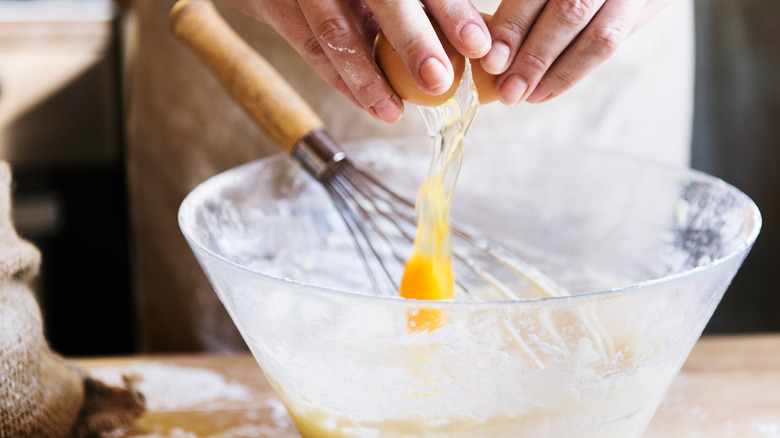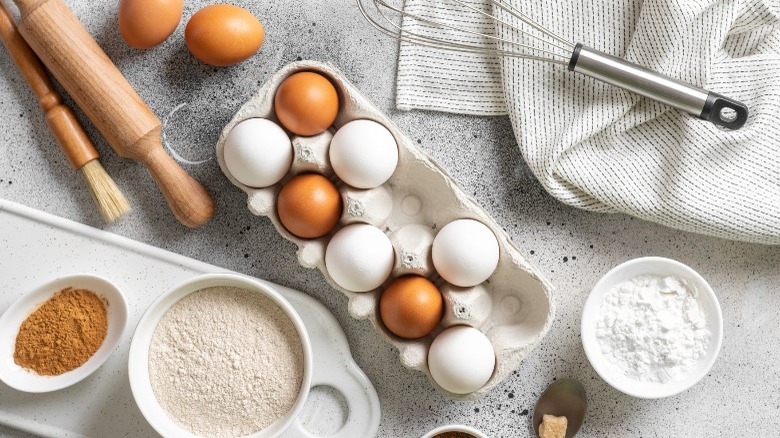Why You Shouldn't Use Cold Eggs When Baking A Cake
Ever try making a cake with cold butter? If so, you know that it's almost impossible, even if you use an electric mixer. The butter is too hard to mix, it doesn't cream readily with the sugar, and in the end it just prolongs the process. Using room temperature butter may be a no-brainer, but it's actually not the only ingredient that you shouldn't add in cold.
According to Real Simple, eggs are also easier to incorporate into a cake batter when they're room temperature. Eggs straight out of the refrigerator will eventually mix with the other ingredients, but they won't emulsify as they should. The reason, Taste of Home explains, is that cold eggs affect the temperature of the whole batter. When the batter is cold, the fat re-solidifies and turns the consistency lumpy. And, as All Recipes points out, a batter that's not cohesive and smooth will bake unevenly and require longer in the oven. To avoid all this, it's best to just start with room temperature eggs.
The best way to bring eggs to room temperature
Whereas you can safely leave butter out until it reaches room temperature, that isn't the best approach for eggs, All Recipes shares. Because the shell and the inside warm up at different rates, when the inside finally reaches room temperature, the shell will be much warmer. A too warm eggshell is the perfect breeding ground for bacteria, making it risky to consume. If you plan on letting your eggs sit out, Taste of Home recommends cracking them into a bowl and separating the whites and yolks. This will speed up the process so your eggs aren't sitting out for too long, and you won't have to worry about bacterial growth on the shell.
The safest option altogether, according to All Recipes, is to simply run your eggs under a stream of warm water for about two to five minutes. Alternatively you can place them in a warm water bath for five to 10 minutes. When your eggs reach room temperature, you can go ahead and add them to your cake batter as normal.

